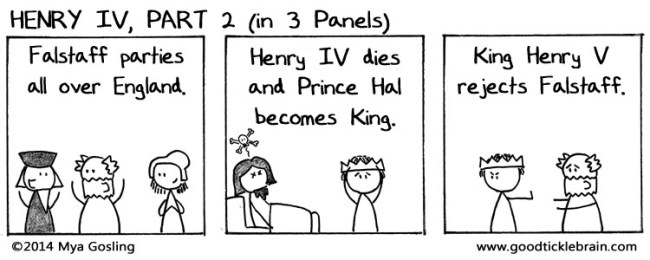Henry V, Prologue
Shakespeare wastes no time starting Henry V, an ironic statement since we begin not with the main action, but instead with a prologue.
Why this isn’t a waste has more to do with The Great Conversation, the Agon of the Ages as Harold Bloom calls it, Shakespeare’s claim to fame as one of the immortals of literature that began with humanity’s first attempts at storytelling in the annals of historical memory.
His words are thunderous, ear-splitting, mind-shattering, echoing previous invocations of the muse by Homer, Virgil and Dante – the Cosmic All-Stars. Mighty company to keep.
When entering such a hallowed hall, best to make one’s presence known straight off by clanging the gong of a familiar meme:
Oh, for a must of fire that would ascend
The brightest heaven of invention!
A kingdom for a stage, princes to act,
And monarchs to behold the swelling scene!
Then should the warlike Harry, like himself,
Assume the port of Mars, and at his heels,
Leashed in like hounds, should famine, sword and fire
Crouch for employment.
Shakespeare twice begs pardon, having tapped into mighty, mythological imagery by invoking the Greek muses, the God of War, and one of the greatest kings in English history.
To rise to the vaunted heights, an aspiring writer needs a magnificent theme. Shakespeare recognizes he has one here and seizes his opportunity by the throat, announcing to the world from the outset that the playing field has been elevated, his aspirations engaged at the highest levels.
We are invited to become willing participants. Indeed, he needs our assistance if his words can hope to paint such a sprawling canvas. We are to lend our aid in imagining the battlefields, the thunderous hooves of the prancing horses, marching soldiers, bloody battles.
The stage may be a pale imitation. But in the right hands, and with our active engagement, Shakespeare dares to make a great historic moment come alive.
It’s breathtaking and unforgettable. And yet the play hasn’t even formally begun.

